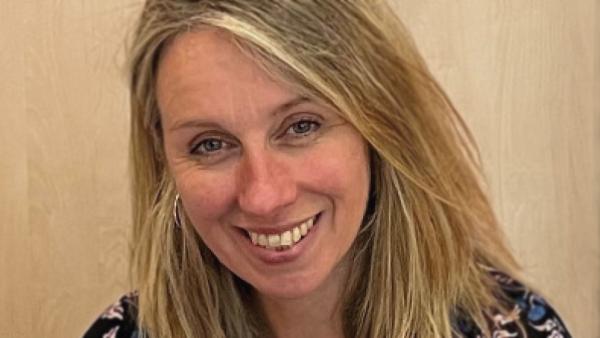The vital work that CSP education representatives do is crucial to help build a workforce that is fit for the future, as Anna Irwin-Childs explains

One of the CSP’s obligations under its Royal Charter is ensuring the high quality of physiotherapy education, which is monitored through our Quality, Assurance and Enhancement (QAE) activities. To support this, we link higher education institutions with an education representative to act as a ‘critical friend’.
Our volunteer education representatives, who are all CSP members, receive ongoing support from the CSP’s education team as they strive to ensure that pre-registration training for the profession will best prepare the physiotherapy workforce of the future. Here we hear from two educational representatives about the work they do and their experiences of the role.
What does an education representative do?
- offer support during the development of new programmes, and ad-hoc advice when needed.
- form the QAE network, coming together four times a year for discussion meetings as well as an annual development day. These focus on reviewing updates to education-related policy, guidance and regulatory requirements, as well as AQR themes and outcomes.
- join online panels, with small groups reviewing operational business, such as accreditations, programme changes, and education representative applications.
Helen Batty: principal lecturer, Sheffield Hallam University
I have been an education representative since 2019. It has been a great opportunity to support the CSP in their quality assurance of physiotherapy educational programmes.
I am linked with two universities and work as a critical friend for their programmes.
I have been involved in re-approval events and support programme teams to ensure their programmes are contemporary and meet the needs of the future physiotherapy workforce in the ever-changing healthcare climate. The role also involves reviewing Annual Quality Review (AQR) data and writing a short report, attending the QAE meetings a few times a year, and attending an annual development day.
The role enables me to view the national picture of physiotherapy education and to work with the CSP education team.
It enables me to learn and share best practice and bring innovations back to my own institution.
I have built relationships with the CSP education team and education reps from across the country, leading to some helpful working partnerships. The time commitment is small compared to the gains in terms of my own continued professional development and the benefits for my institution. I would encourage others to take on the role.
Jane Hislop: co-programme director, simulation based clinical education, Edinburgh Napier University
I’ve been an education representative since 2020. I became aware of the importance of this role through my own experience of having invaluable support from our CSP education representative when I was developing a new pre-registration MSc in physiotherapy. I found it very beneficial to have the opportunity to discuss and share my aspiration and concerns and valued being able to draw on their expert advice, guidance and mentorship.
As an education representative, I try to use my own experiences to offer support and give an external perspective.
I’ve found it really enjoyable to get to know another physiotherapy programme and the programme team and to hear how they have managed the challenges common to many programmes. For example, managing the pressures that come with increasing student numbers to meet the growing need for physiotherapists within health and social care, and the need to explore innovative ways to increase placement capacity.
I’ve gained a lot personally and professionally from this experience. I have enjoyed the opportunity to meet and discuss aspects of physiotherapy education with other representatives and feel privileged to be in a position where I can have an impact on the quality of physiotherapy education for our future workforce. This is something I feel very passionate about.
Become a CSP education representative
Volunteering as a CSP education representative means that you become part of a national team that ensure the high quality of physiotherapy education. We currently have 45 CSP education representatives and they are an essential link between higher education institutions and the CSP.
To become a CSP education representative you will need to be a HCPC-registered chartered physiotherapist, qualified to master’s degree level and with at least five years’ experience of delivering a pre-registration degree programme in physiotherapy.
We are always keen to recruit new volunteers and grow our network. It’s an invaluable, rewarding role, providing a great opportunity to become more involved with the CSP and influence the future of the profession, and a chance to join a supportive peer community.
If you are interested in volunteering as a CSP education representative and want more information, please contact the education team for more information. You can email us at: education@csp.org.uk
Number of subscribers: 1


